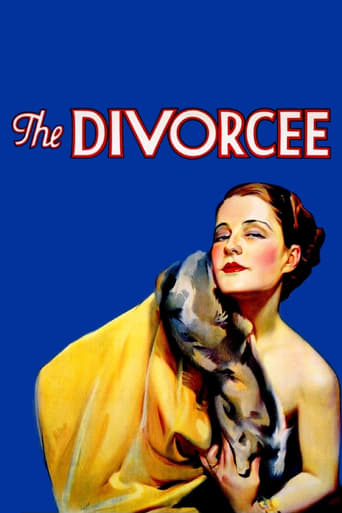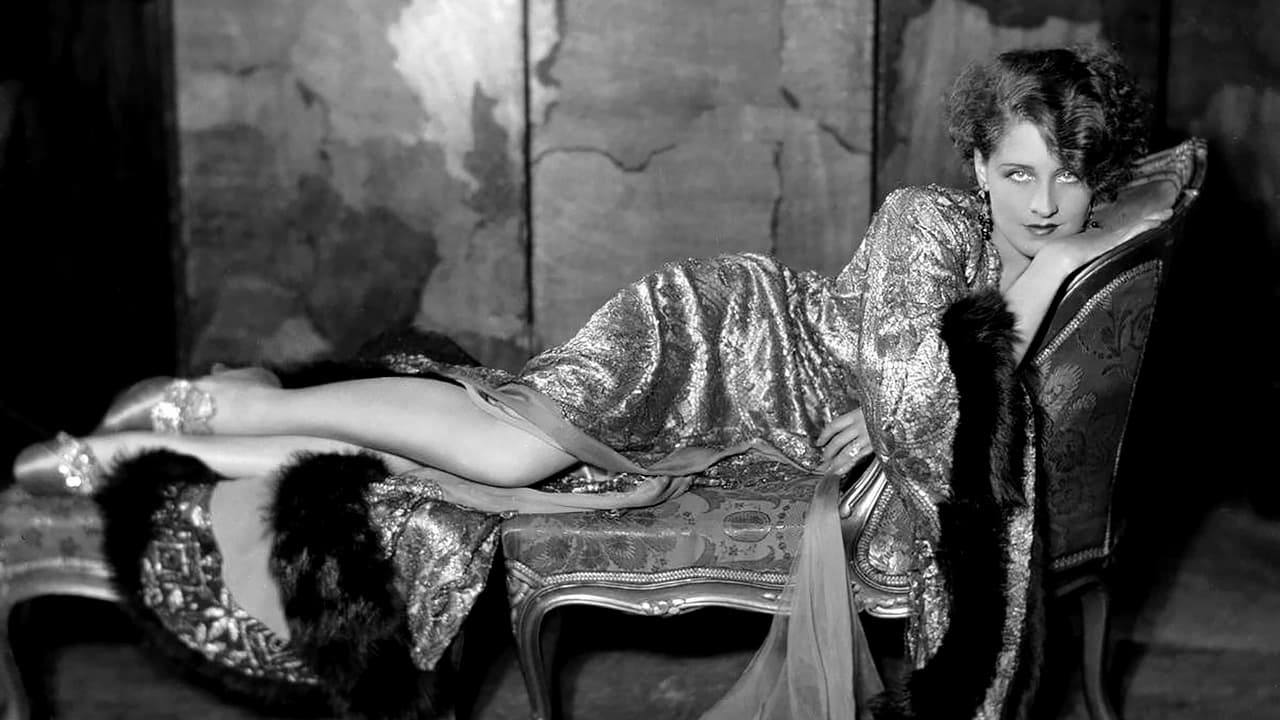JohnHowardReid
Produced and directed by Robert Z. Leonard. Copyright 23 April 1930 by Metro-Goldwyn-Mayer Distributing Corp. New York opening at the Capitol, 9 May 1930. U.S. release: 19 April 1930. 9 reels. 7,533 feet. 83½ minutes.SYNOPSIS: Wife revenges herself for her husband's philandering by having an affair herself.NOTES: Academy Award, Best Actress, Norma Shearer (defeating her own performance in Their Own Desire, as well as Greta Garbo in both Romance and Anna Christie, Nancy Carroll in The Devil's Holiday, Ruth Chatterton in Sarah and Son, and Gloria Swanson in The Trespasser).Also nominated for Best Picture (All Quiet on the Western Front was the winner), Best Directing (Lewis Milestone won for All Quiet on the Western Front), Best Writing (Frances Marion won for The Big House).Number eight in the 1930 Film Daily poll of U.S. film critics. Negative cost was $341,000. Shooting took 22 days. Net domestic rentals amounted to a tidy $676,000, leaving MGM $335,000 in the black — with overseas rentals still to come!COMMENT: Norma Shearer, did she deserve to win an Academy Award for the year's Best Actress? By the standards prevailing in 1930, maybe. In a 2017 judgment, definitely not. It's a staged performance, compounded of nine-tenths artifice and one-tenth genuine feeling or sympathy for the character.It's true, that Norma does improve as the film progresses, but even at her best, she nearly always comes across as the actress, rarely as the character. Her obviously contrived approach is way out of touch not only with today's methods, but even with most of the other players in the movie. Actually, it's Robert Montgomery who comes over most convincingly of all. What's more you can actually sense the seducer ticking away behind all the shallow party tricks. That's acting indeed! I also liked Chester Morris, whose portrayal is generally under- rated. He is a thick head certainly, but that's exactly what the character is. He makes the scene in which he spurns Shearer so realistic that you actually feel for her. This flow of audience sympathy by default to Jerry is entirely due to Morris' acting, not Shearer's.After a great start, in which he does the drunk act most realistically, Conrad Nagel settles down into his conventional "other man" impersonation, but we must commend Judith Wood who plays the unfortunate Dorothy, Tyler Brooke as the inveterate party clown, and especially slinky Mary Doran who makes her Janice-Doesn't-Mean- a- Thing a person to remember.Also worthy of note is screenwriter Zelda Sears who has given herself the part of Hannah, the querulous maid. Being actually on the set throughout, at Robert Z. Leonard's invitation, she actually contributed more to the script, especially the dialogue, than the credits seem to indicate. When not wanted on the set itself, she sat right next to Leonard from go to whoa!Lavishly produced, skillfully edited and directed with considerable expertise, "The Divorcée" only shows its age in a rather noisy Western Electric Noiseless Recording soundtrack. Said noiseless track hisses, splutters and crackles rather disconcertingly throughout the action, but especially in many moments of supposedly pure silence.
GManfred
I say that because the styles, mores and morals depicted in this film are so antiquated that you have to pretend that you are visiting a museum - that is, with an atavistic sense marveling at a relic of an era long gone. Boy meets girl, boy marries girl, boy is unfaithful, girl gets even - but the responses and mindsets of the principals are so out of touch with modern times that one is amused and at times astonished - Did people really act and react like this in similar situations? We can only assume the answer is yes. So be warned - beneath the stilted dialogue and acting lies reality, albeit old-fashioned. Norma Shearer was excellent, Robert Montgomery was under-utilized and Chester Morris was a trifle wooden. Maybe they should have switched him with Conrad Nagel, a much better actor. Morris comes perilously close to wrecking several scenes which evidently required an actor with more range.Speaking for myself, I recommend this one if for no other reason than to revisit motion picture history. It won an AA for Shearer and was nominated for several others, including one for Director Robt. Z. Leonard. I always thought of him as ordinary, and this effort is extraordinary.
PudgyPandaMan
I found that this movie, while groundbreaking and heralded in its day, is extremely dated and corny. I'm a big fan of classic film - especially the late 30's into the 40's. But most of the talkie films of the late 20s and early 30's seem more like carryover of the style ofsilent films. The acting is so melodramatic and exaggerated. Their voice, instead of speaking and emoting naturally, is so over-the-top as to sound ridiculous - nobody talks like that.I also found the 2 lead characters rather unattractive. Norma Shearer was no great beauty to me in this - she rather looked like a transvestite that is not at all feminine. Maybe they wanted a more masculine appearance for her so as to make her more fitting competition in a man's world and man's sport (infidelity).Chester Morris was strange looking as well. His profile showed his nose to look almost smashed into his face. It made him look as though he was constantly smelling something foul on the set. And his makeup was so unnatural - his lipstick was darker than the ladies.The theme of the film was no doubt controversial in its day. I suppose it was an early stab at women's liberation - that "what's good for the is good for the gander" so far as infidelity is concerned.The film provides a nice look at a young Robert Montgomery, just in his 2nd year in films. I think he gives one of the more natural performances.
tfun28
It is funny how the film portrays love. In the beginning it shows the perfect relationship between Ted and Jerry in a rather comedy like fashion (e.g. as they are joking with the boy (their future kid?) who disturbs them in their love nest). Also they are talking to each other more like friends than sexual partners. At one point they kiss in front of the father and their friends, as if to prove, that their love has nothing to do with sexual desire. That's why, in my opinion, the first 20 minutes are rather dull: the relationship looks superficial.The drama kicks in with the twentieth minute when the sexual drive starts a life of its own after three years of marriage. With the sexual desire of Ted, suffering starts, and the film has its first brilliant scene: Jerry surprises Ted being embraced by a woman. Now the other side of Ted - who presumably was such a nice, perfect, asexual man - is shown: He got "plastered" one day and went to bed with another woman. For him it is the drive which made him to it, so he can say: "it is not a thing" in the sense that it is not himself, but the animal inside him that forced him to do it. So the modern question the movie rises is: how does a love relationship looks like, that isn't affected by infidelity? Can they arrive at a deeper, more honest form of love, that includes the sexual desire? The answer the movie gives, in my opinion, is no. Love and sexuality are different things. First of all the latter is associated with the parties, the booze, the jazz music, shortly a decadent, hedonistic lifestyle devoid of happiness. Secondly the somewhat lynchian scene with Dot, Jerry and Paul. It is obvious, that the relationship between Dot and Paul is neither love nor sexual - it is full of pity, guilt and reproaches. Nevertheless Jerry refers to it as a marriage worth saving. (Why? - fidelity itself is more important than love or sexuality?) In so far I think the film has a conservative touch after all. But the strength and self-confidence of the woman characters is way ahead of its time (even compared to the femme fatale of the film noir period, who were in some way or another evil by seducing the men)



 AD
AD


